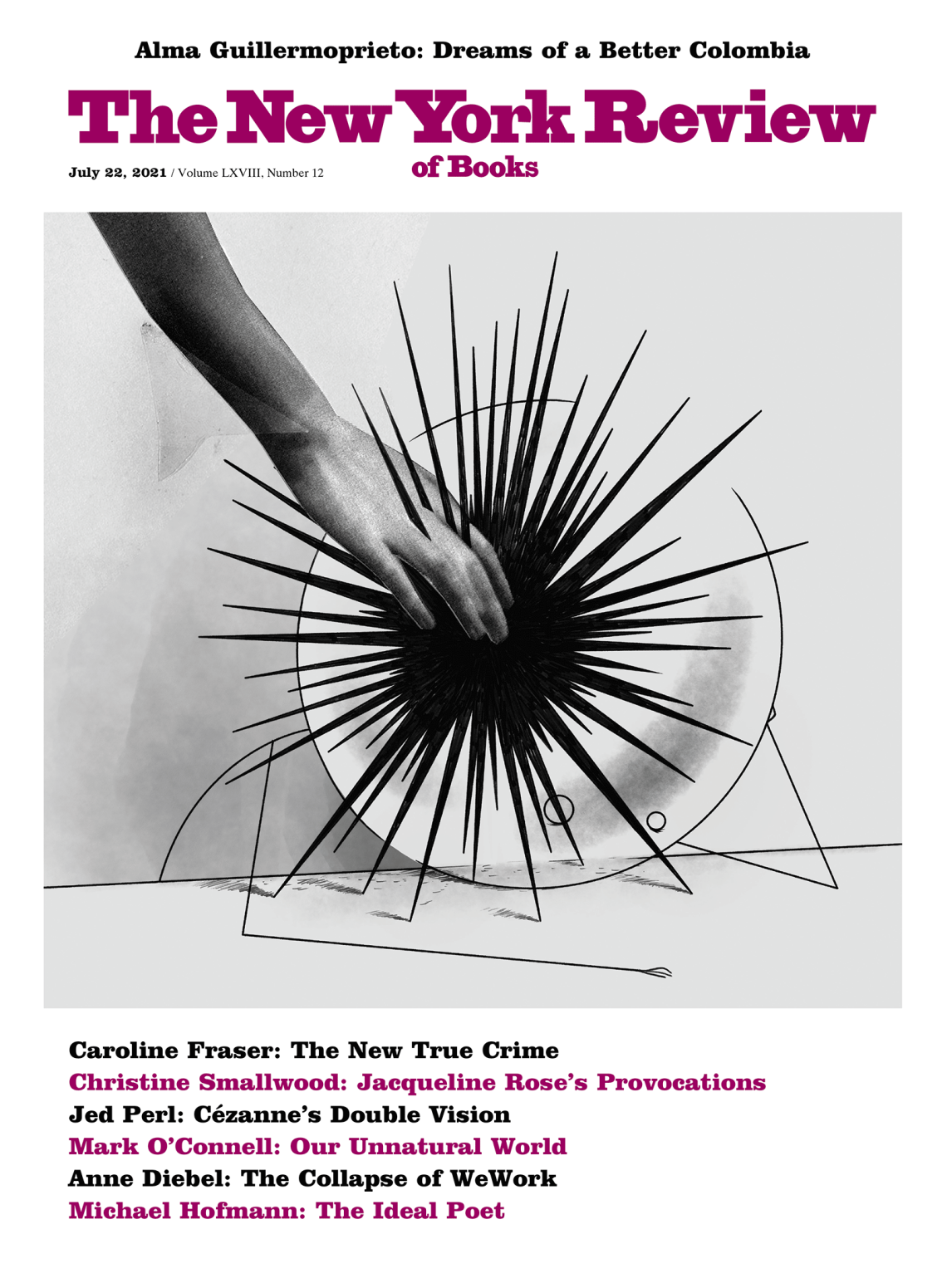In response to:
Kubrick’s Human Comedy from the May 13, 2021 issue
To the Editors:
Andrew Delbanco, in his review of David Mikics’s Stanley Kubrick: American Filmmaker [NYR, May 13], makes reference to several obsessions of Kubrick which never became actual films. He states that Kubrick for years “prepared fanatically for a film on Napoleon,” only to reluctantly abandon the project. (In the book, Mikics does not expand on how the wily Kubrick dealt with this setback.) There is an intriguing backstory here which I can relate on good authority because in the mid-1970s I worked closely with John Calley, the Warner Bros. head of production. John was the most brilliant—and the funniest—studio executive I met in my twenty-year peregrination in that fascinating business. Following Kubrick’s curdled relationship with the MGM brass—despite the massive box office success of 2001—Stanley looked for and found a muy simpatico studio partner in Calley, then newly installed at Warner. The Kubrick/Calley relationship began in 1971 with A Clockwork Orange and remained unbroken through the release of Eyes Wide Shut in 1999, the year of Kubrick’s death. The bravura performance of Clockwork—critically and commercially (despite its X rating)—persuaded John and Warner Bros. to let Stanley make anything the maestro wanted—well, almost anything.
When Kubrick told his new partner that he wanted his follow-on film to Clockwork to be based on the life of Napoleon, John went on a lengthy campaign to dissuade him. Calley was convinced that, following memorable film portrayals by Rod Steiger, Charles Boyer, and Herbert Lom (twice), Napoleon would be hard to make truly interesting to modern audiences—even for Stanley. After almost a year of back-and-forth, Kubrick grumpily bowed to this judgment. Kubrick later called John to reveal his next project, based on a somewhat obscure Thackeray novella, Barry Lyndon. Reading the book, John immediately saw the cinematic potential of the story’s sweeping eighteenth-century canvas and gave his greenlight to it despite an enormous—for its day—budget of $13 million.
After more than two years in secretive and elaborate production, a nearly completed Barry Lyndon was screened in London for John and a few other top Warner honchos. The word came back to us lower-level execs in New York and Burbank that it was “the most beautiful film ever made.” This was distinctly worrisome to anyone steeped in the semiotics of Hollywood. The loose translation? Not a commercial winner. Indeed, in late 1975, Barry Lyndon opened to highly mixed reviews and poor-to-mediocre business in the US and nearly everywhere else except France. When I saw it with a few dozen other Warner executives shortly before its release, I was highly vocal (at some cost to my reputation for commercial sense) in my belief that it was one of the greatest films the studio had ever made—a view I still hold.
In subsequent discussions about this disappointing outcome (Stanley cared very much about the box office), Kubrick asked John if he had figured out that he had indeed made a film about Napoleon. In response to Calley’s puzzled query, Kubrick described Barry Lyndon’s story, as accurately as I can recall forty-five years hence, thusly: “I made a film about someone from outside the ruling circles, born on an island separated from the rest of the nation, who rises from middle-class origins to the very pinnacle of society, only to fall precipitously and end up going into exile with his mother. John, I made Napoleon!”
Roger R. Smith
New York City


